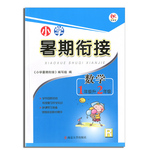题目内容
A Double Misunderstanding Once before the Iranian revolution,the then President of the United States Jimmy Carter visited Iran. He held a formal talk with the Shah,Pahlevi. As the Shah had an excellent 1 of English,no 2 were needed for the 3 . However,the Shah spoke English with an accent which led to a 4 on a major question,but interestingly enough,Carter,being a southerner,also had his accent and so the misunderstanding turned into a 5 one. This is how it all happened. During their talk Carter 6 a certain African organization and asked the Shah to give an overall (总体的,全面考虑的) appraisal (估计,评估) of it. The Shah didn't have a very 7 opinion of the said organization 8 he found it beset (困扰) with many internal problems,so he used the word "impotent (无能力的) "to describe it. The trouble was in pronouncing the word he 9 the 10 on the second syllable and the word 11 like " important" to Carter. As it happened Carter himself thought the organization was a very important one and he felt most 12 that their opinions should " 13 " ,"Yes,I agree that the organization is indeed very important," he repeated to the Shah. Now in his southern accent,the word "important" sounded very much like the word " impotent",and the Shah too felt most pleased that the President should agree with him. Now of all the people 14 on the occasion,only the then US ambassador 15 Iran,Mr. Sullivan,16 that it was a "double misunderstanding" as he knew the President's and the Shah's different opinions on that African organization and he was also familiar with both men's 17 accents. Naturally he didn't see 18 fit for him to put them 19 on the matter so he kept his mouth shut. He 20 a glance around the room to see if anyone else was enjoying the joke with him and so the matter was allowed to pass.
( ) 1. A. head B. master C. command D. grasp
( ) 2. A. interpreter B. attendant C. staff D. waiter
( ) 3. A. affairs B. situation C. condition D. occasion
( ) 4. A. misconstruction B. misunderstanding C. misconception D. mistake
( ) 5. A. double B. twin C. two D. both
( ) 6. A. mentioned B. indicated C. referred D. remarked
( ) 7. A. sharp B. great C. high D. influential
( ) 8. A. though B. for C. since D. as
( ) 9. A. had B. put C. got D. took
( ) 10. A. accent B. pressure C. stress D. emphasis
( ) 11. A. looked B. seemed C. felt D. sounded
( ) 12. A. relaxed B. contented C. comfortable D. pleased
( ) 13. A. coincide B. agree C. conform D. correspond
( ) 14. A. accompany B. participating C. present D. attended
( ) 15. A. in B. to C. for D. of
( ) 16. A. recognized B. realized C. comprehended D. conceive
( ) 17. A. special B. peculiar C. particular D. extraordinary
( ) 18. A. the thing B. the matter C. that D. it
( ) 19. A. wise B. bright C. clever D. smart
( ) 20. A. had B. gave C. cast D. took
CADBA ACDBC DDACB BBDAC
本文讲述了美国前总统吉米•卡特与伊朗总统由于口音的差异造成了认同上的误解。
1. C have a master of不是固定搭配短语;grasp 意为领会,不符合题意。
2. A根据句意可知是不需要翻译,而不是其他。
3. D这一题考查学生处理上下文的综合能力,下文有该题的提示。
4. B本篇短文围绕的主题即"误解"。此处通过句意的理解可以正确判断出答案。 miscon?struction是"曲解";misconception是"误会"。
5. A从上下文可以看出这是一次双重误解。 A项可以较好地表达出这样意思。
6. A谈话中提及某一非洲组织。 refer要与to 连用;indicate是"指明";remark是"作评价"。
7. C have a high opinion of是一固定短语搭配。
8. D此处表示原因。 for只能连接并列关系的因果,其前常用逗号与另一句子分开,作为一种补充。 since表原因语气较弱,常译为"既然",不符合此处题意。
9. B "说话时将重音放在哪一音节"我们常用put或lay表达,此处B项为正确答案。
10. C其他几个选项不符合本处的短语搭配要求。
11. D此处意为"听起来",而ABC选项分别为"看起来"、"似乎是"和"想要",均不符合题意。
12. D本题考查学生利用上下文的能力,本题答案下文有提示。
B项contented意思是"满足的,心安的"。
13. A coincide多用于指观点、判断、愿望、利益或兴趣的一致或相符。偶尔用于人,强调意见或观点完全相同。
agree:侧重指经过比较后的所有主要部分均和谐一致,无冲突和矛盾。
conform:强调在形状、性格以及主要特点等方面的相似或一致。
correspond:指在进行比较时,两个事物在某一个重要方面或细节上互相匹配、一致。
14. C accompany是"陪同、伴随";participating 是"参与、一起参加的",但后面要与in连用;attended是"照料、伺候"。正确答案应为C项。
15. B ambassador to a certain country是一个固定搭配。
16. B此题是意识到了差错,应选用realize; recognize是"认出、听出"之意;comprehend 是"充分理解,领悟";conceive是"设想,想出"。
17. B正是两人奇特的口音而造成这一误解,而不是其他。
special:是普通用词,指不同于一般、与众不同,着重事物的专门性,突出与一般不同。
peculiar:强调指与众不同或独特的意思。
particular:侧重不同于普遍性的个性或特殊性。
extraordinary:指极大地超过一般或正常情况。
18. D此处是形式宾语+不定式的复合结构,即:…it +adj.+ for sb. to do sth.。不能选择其他来表达此意。
19. A大使了解其间的奥妙,清楚两位领导人对该非洲组织的真正观点,同时也知道他们语言方面的欠缺和特点。当然,在这样的场合,大使是不便说什么的了。这是明智之举。
20. C A项应为have a glance at sb. /sth.;B项应为give sb. a glance;D项应为take a glance at/into/of/over/to等介词连用。
C项cast a glance at/around是"扫了在场的人员一眼",符合题意。

 学而优暑期衔接南京大学出版社系列答案
学而优暑期衔接南京大学出版社系列答案 Happy holiday欢乐假期暑假作业广东人民出版社系列答案
Happy holiday欢乐假期暑假作业广东人民出版社系列答案 快乐暑假暑假能力自测中西书局系列答案
快乐暑假暑假能力自测中西书局系列答案